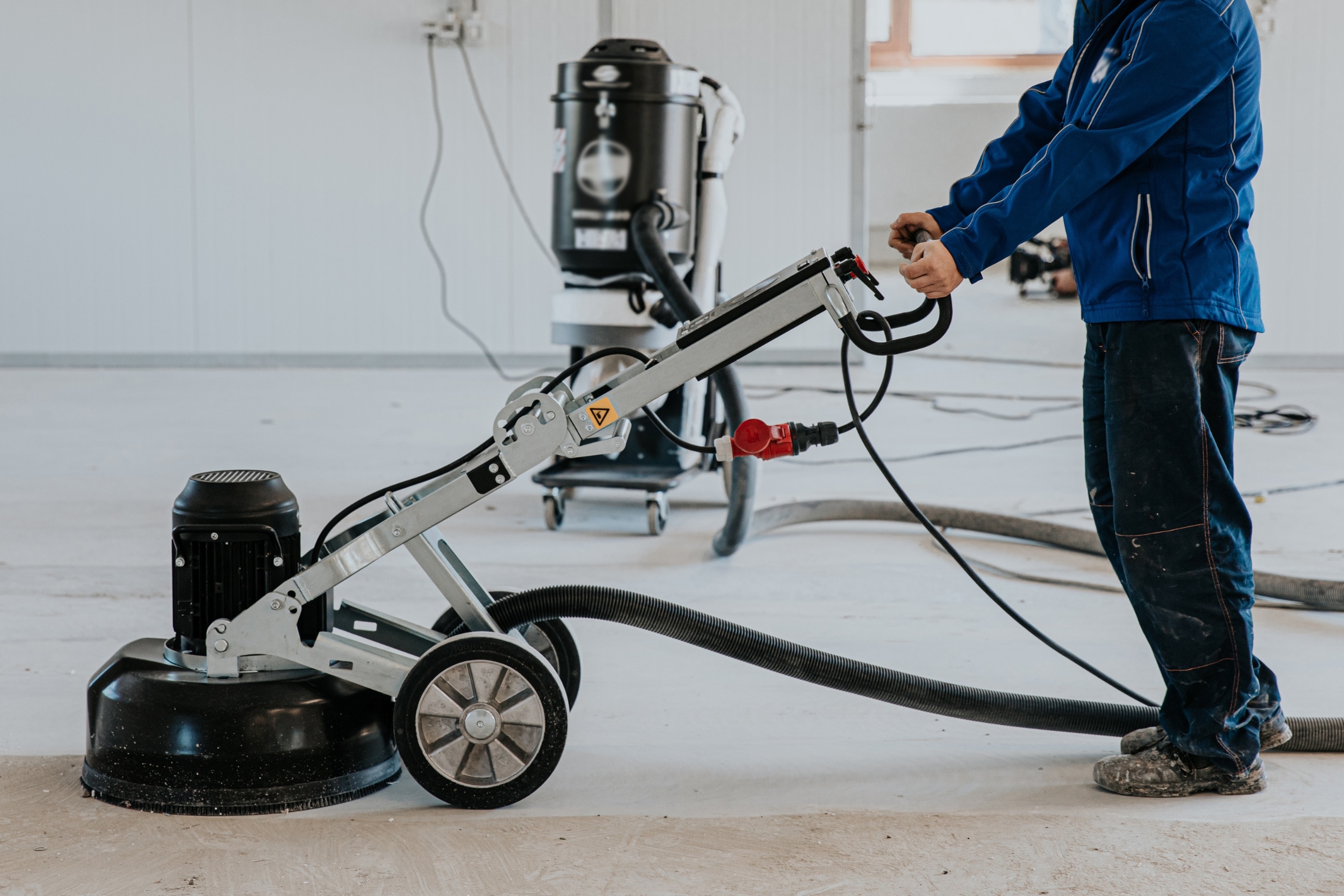
Even if you know nothing about epoxy floors, chances are that you’ve heard about them at some point. Due to their durability and long-lasting nature, epoxy floors have risen to be one of the most popular flooring types on the market. Read on to learn all about epoxy floors and exactly how they work.
Broadly speaking, epoxy itself is used in the production of adhesives, paints, plastics, coatings, primers, sealers, and flooring.
Epoxy flooring refers to using an epoxy solution for a floor within a selected space, either commercial or residential. They are most commonly used in commercial and industrial spaces, such as warehouses, health facilities (hospitals), air hangers, and factories, but they are surging in popularity for use in garages, kitchens, bathrooms, and basements in homes as well.
The reason they are so popular is because of their resilience to harsh conditions and heavy traffic, along with easy maintenance. Epoxy floor solutions are known for:
Epoxy floors are a relatively new invention despite their complex history. Epoxy as a material was first invented in the early 20th century and surged into a popular commercial product in 1936 when Pierre Castam of Switzerland began synthesizing the first commercial epoxy polymer and, with the help of Sylvan Greenlee, developed the first patented epoxy resin.
Immediately recognized for its excellent adhesion, resistance to harsh elements, and sleek appearance, this type of flooring was quickly boosted to the forefront of the industry.
During World War II, epoxy floors were used in military installations to protect concrete surfaces from heavy machinery and foot traffic. Artists then began using epoxy in the 1960s to create unique designs and patterns on floors, walls, and other surfaces. Epoxy floors were even used in space exploration, with NASA using epoxy coatings on the floors of their space capsules to provide a non-slip surface for astronauts.
Today, epoxy floors are a staple of the flooring industry and are an extremely popular choice for commercial and residential applications alike.
Broken down, epoxy contains components of epoxy resins (epoxy polymers). These resins help to bind the various types of epoxy flooring layers along with a hardening component to create the end product for your epoxy floor. Ultimately, epoxy floors can be divided into three categories: solvent-based, water-based, and 100% solid epoxy resin.
For all you chemists out there, most of the commercially used epoxy monomers are produced by the reaction of a compound with acidic hydroxy groups and epichlorohydrin. The most common epoxy resins are based on reacting epichlorohydrin (ECH) with bisphenol A, resulting in a different chemical substance known as bisphenol A diglycidyl ether (commonly known as BADGE or DGEBA).
Epoxy floors are installed by first preparing the base floor. The base floor is usually a pre-existing concrete surface, which is then repaired of any cracks and holes, sanded down and cleaned. Then, epoxy primer is applied across the base flooring, followed by a series of coats of epoxy resin and the hardening components mentioned above.
Epoxy floors have many different types to increase their versatility and aesthetic appeal, such as quartz-filled epoxy for decorative, non-slip flooring, and it has varying cure times depending on a number of variables.
The biggest benefits of epoxy flooring are that it is durable and long-lasting.
Firstly, it creates an impenetrable, non-porous seal, making it completely water-resistant. Anywhere that is subject to water spillage or flooding will have zero water damage due to the epoxy flooring. Furthermore, this is equally beneficial for commercial spaces that may incur oil or chemical spills - these toxins will not be absorbed into the floor and can be easily cleaned.
Secondly, epoxy floors are strong and durable. They hold up against high usage, chipping, and damage - essentially a layer of protection for the underlying concrete. Beyond its easy cleaning benefits, you won’t have to worry about chipping or cracking your floor if you accidentally drop your bike or a hammer. You can expect your garage to still look great for years after the epoxy application - on average, up to 20 years!
There is a reason why epoxy floors surged into popularity and have been used in military and space-faring projects - it is a flooring solution of the future. If you want the same benefits of a floor with high durability and a long lifespan for your home or business, contact the experts at Epoxy Colorado today!
